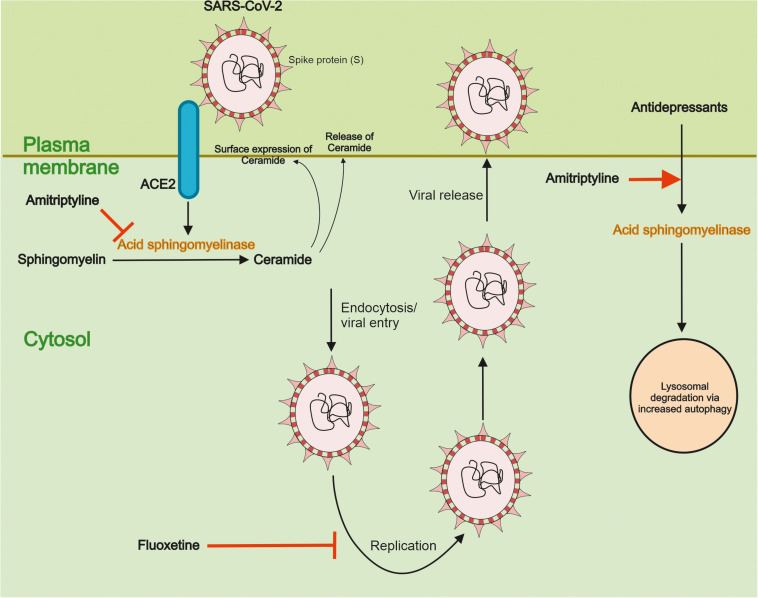FIGURE 3.
Functional interactions between SARS-CoV-2 and the ASM/ceramide system. Effects of antidepressant drugs. Ceramide plays an important role in signaling by different cell surface receptors. Ceramide is produced from sphingomyelin by the action of Acid sphingomyelinase (ASM) in lysosomes and cell membranes. It was recently shown that the interaction of SARS-CoV-2 with ACE2 activates ASM in cells and induce an accumulation of ceramide at the cell surface. The antidepressant drug Amitriptyline reduced ASM levels and activity, and the production and accumulation of ceramide. This in turn diminished the uptake of SARS-CoV-2 in human epithelial cells. Amitriptyline further prevented the infection of nasal epithelia cells by SARS-CoV-2 in an ex vivo model using human volunteers (see text for details). The antidepressants act by functionally inhibiting ASM and reducing ceramide levels in membranes and they are also known to influence autophagy. Fluoxetine was further shown to inhibit the SARS-CoV-2 replication through effects on endolysosome acidification and cholesterol levels. More detail studies are, however, warranted for how different antidepressants and other drugs may affect the viral uptake, replication and the other intracellular steps in the life cycle of SARS-CoV-2. Likewise, clinical studies are important to conduct with the antidepressant and other promising drugs with regard to their potential use and safety for treatment of patients afflicted by COVID-19.

